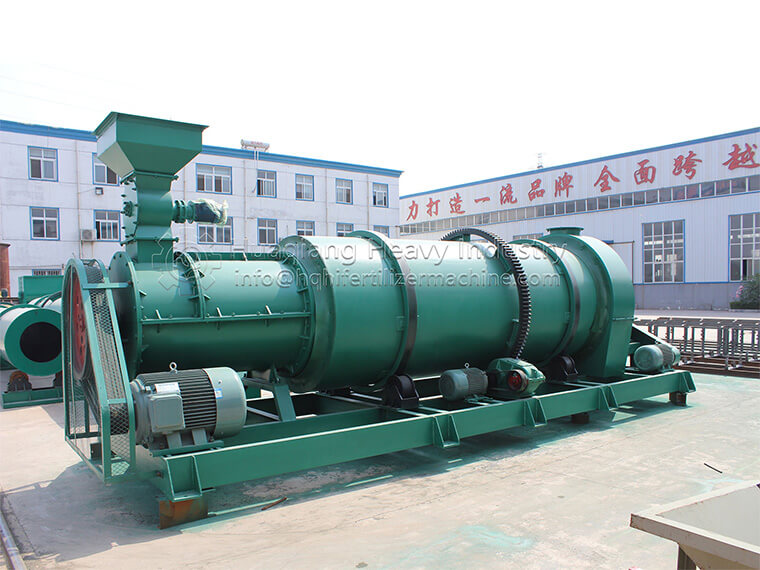Choosing the appropriate organic fertilizer granulator for chicken farms is a key step in achieving the resource utilization of chicken manure. Reasonable selection can not only improve production efficiency, but also ensure product quality and create more economic benefits. Here are a few key factors for reference:
1. Evaluate the characteristics of chicken manure
Moisture content: The initial moisture content of chicken manure is relatively high, usually between 60% and 80%. It is necessary to consider whether there is a pre drying equipment or adjust the moisture content to a suitable level for granulation (about 30%).
Particle requirements: Determine the desired size, shape (circular, elliptical, elongated, etc.), and hardness parameters of the organic fertilizer particles to be produced, which directly affect the selection of pelletizer models.
2. Production scale
Capacity demand: Based on the daily/monthly/annual processing of chicken manure in the chicken farm, estimate the theoretical production capacity of the organic fertilizer granulator, leaving a certain margin to cope with seasonal changes or unexpected situations.
Space limitations: Consider the installation space that chicken farms can provide, including whether they have sufficient area and height, as well as power supply capacity.
3. Technical performance
Energy consumption indicators: Pay attention to the power consumption, steam consumption, etc. of the granulator, select products with high energy efficiency, and lower long-term operating costs.
Automation level: Modern organic fertilizer granulators are often equipped with intelligent control systems. The higher the automation level, the easier the operation, the less manual intervention, and the relatively low failure rate.
4. Brand and after-sales service
Brand reputation: Choose a reputable and experienced enterprise in the industry, whose product quality and service are more guaranteed.
After sales service: Confirm whether the supplier can provide timely technical support and spare parts supply, as well as the specific content of the warranty policy.
5. Regulations and Certification
Compliance with standards: Ensure that the selected model meets local environmental regulations and technical standards, such as noise emission limits, exhaust emission standards, etc.
Safety certification: Check whether it has the necessary safety certification marks, such as CE, ISO9001, etc., to prove its manufacturing quality and safety.
6. Comprehensive consideration
Field visit: If conditions permit, personally visit the site of the manufacturer or similar users to intuitively experience the operation status and actual effect of the machine.
Cost benefit: Based on a comprehensive comparison of initial investment, operating expenses, and potential profits, develop a budget and select the most cost-effective solution.
Through the above steps, chicken farms can choose the most suitable organic fertilizer granulator for their own needs, effectively convert chicken manure, promote circular economy, and enhance overall economic benefits.